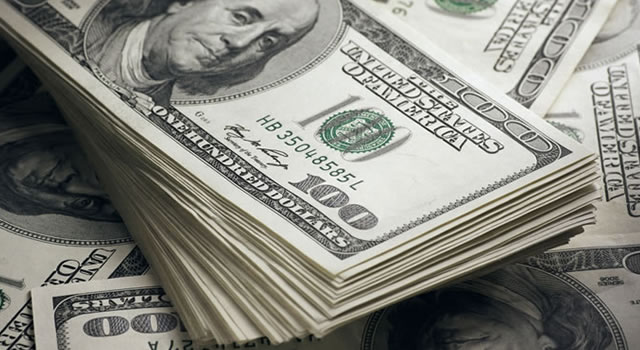Business
Nigeria’s foreign reserves fall by $374m in 3 weeks

The nation’s foreign exchange (forex) reserves have lost over $374 million within three weeks, the latest data from the Central Bank of Nigeria (CBN) obtained by Ripples Nigeria on Monday has shown.
The forex reserves, which suffered series of depletion recently, dropped from $47.799 billion on May 18, 2018 to $47.425 billion as of June 7, 2018.
The decrease could be linked to the continuous intervention of the CBN in the foreign exchange market and recent exit of foreign portfolio investors.
The equities market sustained a weak performance throughout May 2018, causing the market to hit its worst monthly decline in over two years due to continous selloffs on market bellwethers.
The CBN had projected that the country’s external reserves would rise to $50 billion before the end of 2018 amidst improved forex supply due to the establishment of Investors’ and Exporters’ (I&E) forex window of the foreign exchange market.
The reserves had increased from about $23 billion recorded in October 2016 to $47.865 billion on May 10, 2018, the highest point in 2018. But, the forex reserves recorded its first decline in eight months from May 10, 2018, dropping $81million to close at $47.784 billion on May 16, 2018. Thereafter, the reserves rose to $15 billion as of May 18, 2018.
Read also: Stock market resumes bearish trend as ASI dips by 0.96%
Analysts at FSDH Research, in their Monthly Economic and Financial Market Report released during the weekend, said the Month-on-Month growth rate recorded in the external reserves was the lowest level since July 2017.
According to the Head of Research, FSDH Merchant Bank, Ayodele Akinwunmi, the pressure on demand from foreign investors was mainly responsible for the low growth in the external reserves.
“The 30-day moving average external reserves increased by 0.36%, up from US$47.49bn at end-April to US$47.66bn at 28 May 2018.
“The total turnover at the I&E Window between April 2017 and May 2018 stood at US$50.73bn. The highest amount was recorded in January 2018.
“Our analysis between August 2017 and May 2018 shows that Nigeria recorded the lowest foreign exchange inflows through the I&E Window in May 2018,” he said.
FSDH Research said it expects the positive domestic and external environment to further lead to external reserves accretion in the short-term and this development should provide further stability for the foreign exchange rate.
By Oluwasegun Olakoyenikan…
RipplesNigeria… without borders, without fears
Click here to join the Ripples Nigeria WhatsApp group for latest updates.
Join the conversation
Support Ripples Nigeria, hold up solutions journalism
Balanced, fearless journalism driven by data comes at huge financial costs.
As a media platform, we hold leadership accountable and will not trade the right to press freedom and free speech for a piece of cake.
If you like what we do, and are ready to uphold solutions journalism, kindly donate to the Ripples Nigeria cause.
Your support would help to ensure that citizens and institutions continue to have free access to credible and reliable information for societal development.






















